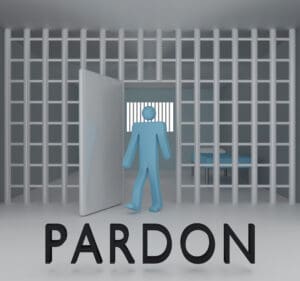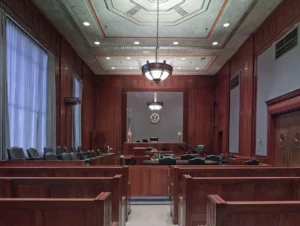Reactive PR in legal marketing is a strategic approach that attorneys and law firms employ to respond to external events, media inquiries, or public situations that directly or indirectly affect their practice or clients. This form of public relations involves quickly and effectively addressing issues as they arise, often in response to negative publicity, legal developments, or emerging trends in the legal landscape. For attorneys, understanding when and how to use reactive PR is crucial for maintaining their reputation, protecting their clients’ interests, and capitalizing on opportunities to showcase their expertise.
In the fast-paced world of legal practice, where news travels at the speed of a tweet and public opinion can shift in an instant, mastering the art of reactive PR has become an essential skill for attorneys looking to thrive in a competitive market. Unlike proactive PR strategies that focus on planned campaigns and controlled messaging, reactive PR requires agility, quick thinking, and a deep understanding of both legal nuances and public perception.
One of the primary scenarios where attorneys should consider employing reactive PR is during high-profile cases that attract media attention. When a case garners significant public interest, whether due to the parties involved, the nature of the allegations, or its potential societal impact, attorneys may find themselves thrust into the spotlight. In these situations, a well-executed reactive PR strategy can help lawyers manage the narrative surrounding the case, protect their client’s reputation, and ensure that accurate information is disseminated to the public.
For example, imagine a corporate attorney representing a company facing allegations of environmental violations. As news of the allegations breaks, the attorney might use reactive PR techniques to issue statements clarifying the company’s position, outlining steps being taken to address the concerns, and emphasizing the client’s commitment to environmental responsibility. By proactively engaging with the media and stakeholders, the attorney can help shape the public discourse and mitigate potential damage to the client’s reputation.
Another critical moment for reactive PR in legal marketing arises when there are significant changes in laws or regulations that affect a lawyer’s area of practice. For instance, if a new piece of legislation is passed that impacts employment law, an attorney specializing in this field might use reactive PR to position themselves as an expert on the new regulations. This could involve issuing press releases, giving interviews to local media outlets, or publishing thought leadership articles explaining the implications of the new law for businesses and employees.
By swiftly responding to legislative changes with insightful commentary and analysis, attorneys can demonstrate their expertise and attract potential clients who are seeking guidance on navigating the new legal landscape. This type of reactive PR not only serves to inform the public but also establishes the attorney as a go-to resource for matters related to the new legislation.
Crisis management is another crucial area where reactive PR plays a vital role in legal marketing. Law firms and individual attorneys may find themselves facing reputational challenges due to various circumstances, such as ethical complaints, negative client feedback, or association with controversial cases. In these situations, a well-crafted reactive PR strategy can help mitigate damage and preserve the attorney’s professional standing.
For example, if a law firm faces allegations of misconduct by one of its partners, the firm’s leadership might use reactive PR to address the issue head-on. This could involve issuing a statement acknowledging the allegations, outlining the steps being taken to investigate the matter, and reaffirming the firm’s commitment to ethical practice. By responding promptly and transparently, the firm can demonstrate its integrity and commitment to addressing issues, potentially minimizing long-term reputational damage.
It’s important to note that reactive PR in legal marketing isn’t solely about damage control. Attorneys can also use this approach to capitalize on positive developments or unexpected opportunities. For instance, if a lawyer wins a landmark case or receives a prestigious award, they might use reactive PR to amplify this success and attract media attention. This positive publicity can enhance the attorney’s reputation, attract new clients, and strengthen their position in the legal market.
When considering when to use reactive PR, attorneys should be mindful of the ethical considerations and professional rules governing legal marketing. The American Bar Association’s Model Rules of Professional Conduct, as well as state-specific regulations, place certain restrictions on how lawyers can advertise and promote their services. Reactive PR strategies must be carefully crafted to ensure compliance with these rules while still effectively addressing the situation at hand.
One key aspect of successful reactive PR in legal marketing is timing. Attorneys must be prepared to respond quickly to emerging situations, as delays in addressing issues can often exacerbate problems or allow others to control the narrative. This requires having a robust media monitoring system in place to stay informed about relevant news and developments, as well as a clear chain of command for approving and issuing statements or responses.
Developing strong relationships with journalists and media outlets can also enhance an attorney’s ability to engage in effective reactive PR. By establishing themselves as reliable sources of legal insight and commentary, lawyers can increase their chances of being contacted for expert opinions when relevant stories break. This not only provides opportunities for positive media exposure but also allows attorneys to shape the conversation around legal issues in their practice areas.
Another important consideration in reactive PR for legal marketing is the choice of communication channels. While traditional media outlets remain important, the rise of social media and digital platforms has created new avenues for attorneys to engage in reactive PR. Platforms like Twitter, LinkedIn, and legal blogs allow lawyers to respond quickly to developments, share their expertise, and engage directly with their audience.
However, the use of social media in reactive PR also comes with risks. The immediacy and informality of these platforms can sometimes lead to hasty or ill-considered responses. Attorneys must be cautious to maintain professionalism and adhere to ethical guidelines even when engaging in real-time communications. It’s often advisable to have a social media policy in place and to designate specific individuals within a law firm who are authorized to post on behalf of the organization.
One emerging trend in reactive PR for legal marketing is the use of video content. As video becomes increasingly popular across digital platforms, attorneys are finding creative ways to incorporate it into their reactive PR strategies. For example, a lawyer might record a short video statement in response to a breaking legal news story, offering their expert analysis and insights. This format can be particularly effective in humanizing the attorney and making complex legal concepts more accessible to a general audience.
Another area where reactive PR can be particularly effective is in responding to negative online reviews or comments. In today’s digital age, potential clients often turn to online reviews and ratings when selecting an attorney. If a lawyer or law firm receives a negative review, a thoughtful and professional response can demonstrate their commitment to client satisfaction and potentially mitigate the impact of the negative feedback.
However, attorneys must be extremely careful when responding to online reviews to avoid breaching client confidentiality or engaging in unprofessional behavior. A well-crafted response might acknowledge the reviewer’s concerns, express a willingness to address any issues, and invite the reviewer to discuss the matter privately. This approach can show potential clients that the attorney takes feedback seriously and is committed to resolving client concerns.
Reactive PR can also be a powerful tool for attorneys looking to establish thought leadership in their field. By quickly responding to emerging legal trends or high-profile cases with insightful commentary, lawyers can position themselves as experts in their practice areas. This might involve writing op-eds for legal publications, giving interviews to industry media, or publishing in-depth analyses on their firm’s blog or website.
For example, a cybersecurity lawyer might use reactive PR to comment on a major data breach, offering insights into the legal implications for affected companies and individuals. By providing timely and valuable information, the attorney not only raises their profile but also demonstrates their expertise to potential clients who may be facing similar issues.
It’s worth noting that reactive PR should be part of a broader, integrated marketing strategy for attorneys. While it’s important to be able to respond effectively to external events and opportunities, this should complement ongoing proactive marketing efforts. A comprehensive legal marketing plan might include content marketing, search engine optimization, networking events, and targeted advertising, alongside reactive PR strategies.
One challenge that attorneys may face when engaging in reactive PR is balancing the need for a quick response with the importance of accuracy and thoroughness. In legal matters, precision is crucial, and rushing to make a statement without fully understanding the facts or implications can be risky. To address this, some law firms have established rapid response teams that can quickly gather information, consult with relevant experts, and craft appropriate responses to emerging situations.
Another consideration in reactive PR for legal marketing is the potential impact on ongoing or future litigation. Attorneys must be careful not to make statements that could prejudice their clients’ cases or violate court orders regarding publicity. This requires a delicate balance between addressing public concerns and protecting the legal interests of clients.
In some cases, the best reactive PR strategy might be to decline comment or provide only a brief, neutral statement. This approach can be appropriate when commenting might jeopardize a client’s position or when the full facts of a situation are not yet known. However, even a “no comment” response should be delivered strategically, as silence can sometimes be interpreted negatively by the public or media.
As the legal industry continues to evolve, new opportunities and challenges for reactive PR are likely to emerge. For instance, the growing use of artificial intelligence and machine learning in legal practice may create new scenarios where attorneys need to quickly respond to technological developments or ethical concerns. Similarly, the increasing globalization of legal services may require lawyers to be prepared to address international issues and cultural sensitivities in their reactive PR efforts.
Ultimately, the key to successful reactive PR in legal marketing lies in preparation, agility, and a deep understanding of both legal principles and public relations strategies. Attorneys who can effectively navigate the complex landscape of media relations, crisis management, and public perception while maintaining their professional integrity and ethical standards will be well-positioned to thrive in an increasingly competitive legal market.
By mastering the art of reactive PR, attorneys can not only protect their reputation and that of their clients but also seize opportunities to demonstrate their expertise, attract new clients, and contribute meaningfully to public discourse on important legal issues. As the legal profession continues to adapt to a rapidly changing media environment, the ability to engage in effective reactive PR will likely become an increasingly valuable skill for attorneys looking to build successful and sustainable practices.





















